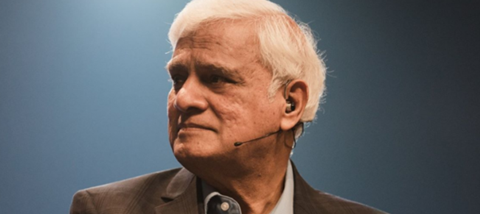
For the most part, the survivor perspective has been missing from the response to the Miller & Martin report and statement from RZIM’s board. Commentators have published articles about celebrity culture, Ravi’s books and the damage to Christianity’s reputation, but to date, relatively little has been written on what it feels like as a survivor to be watching this story unfold.
As survivors, it has pained us to see a response that centres an organisation rather than the women impacted by its abuse. This is retraumatizing for us as survivors, because it’s a reminder of the institutional power and male privilege that pervades our societies, and that we were once up against when we reported our own sexual abuse to Christian organisations.
Responses that continue to centre institutions over survivors perpetuate societal norms which enable abuse to persist. Nothing will change if institutional reputation continues to take precedence over responding justly to the voice of women.
We believe RZIM needs to show that they are placing survivors at the centre of their response. They need to stop. They need to listen. And they must take the time that’s needed to lament without trying to rebuild. During a period of lamenting, it is not the time to plant anything new. Like a farmer leaving land fallow, it is a time to let the soil rest and recover. True repentance is open-ended. The organisation’s existence cannot be the end goal of the process.
In their statement, the RZIM board writes: "We are devastated by what the investigation has shown..." We are struggling to see the evidence of their devastation. What we do see is an organisation already working towards its own reform. As survivors, we know what it is to be truly devastated - it is to lose the ability to function. Lori Ann Thompson, survivor and whistle-blower of Ravi Zacharias’ abuse, summed this up well, responding to media requests on Twitter with: "I’m not even capable of cleaning my house much less communicating in an actual complete sentence." From our experience, this is what devastation looks like.
RZIM’s response does not convey evidence of an organisation that is truly devastated and understands the depth of devastation it has caused others. Devastation is not rebuilding and reforming an organisation. At least not yet. The energy required for organisational reform is diametrically opposed to the posture of one who is devastated. When you’re devastated, you have no option but to stop.
The authors of this article are both survivors of sexual abuse which took place in Christian settings in the UK, 14 years apart. One of the authors is currently under an NDA.





























